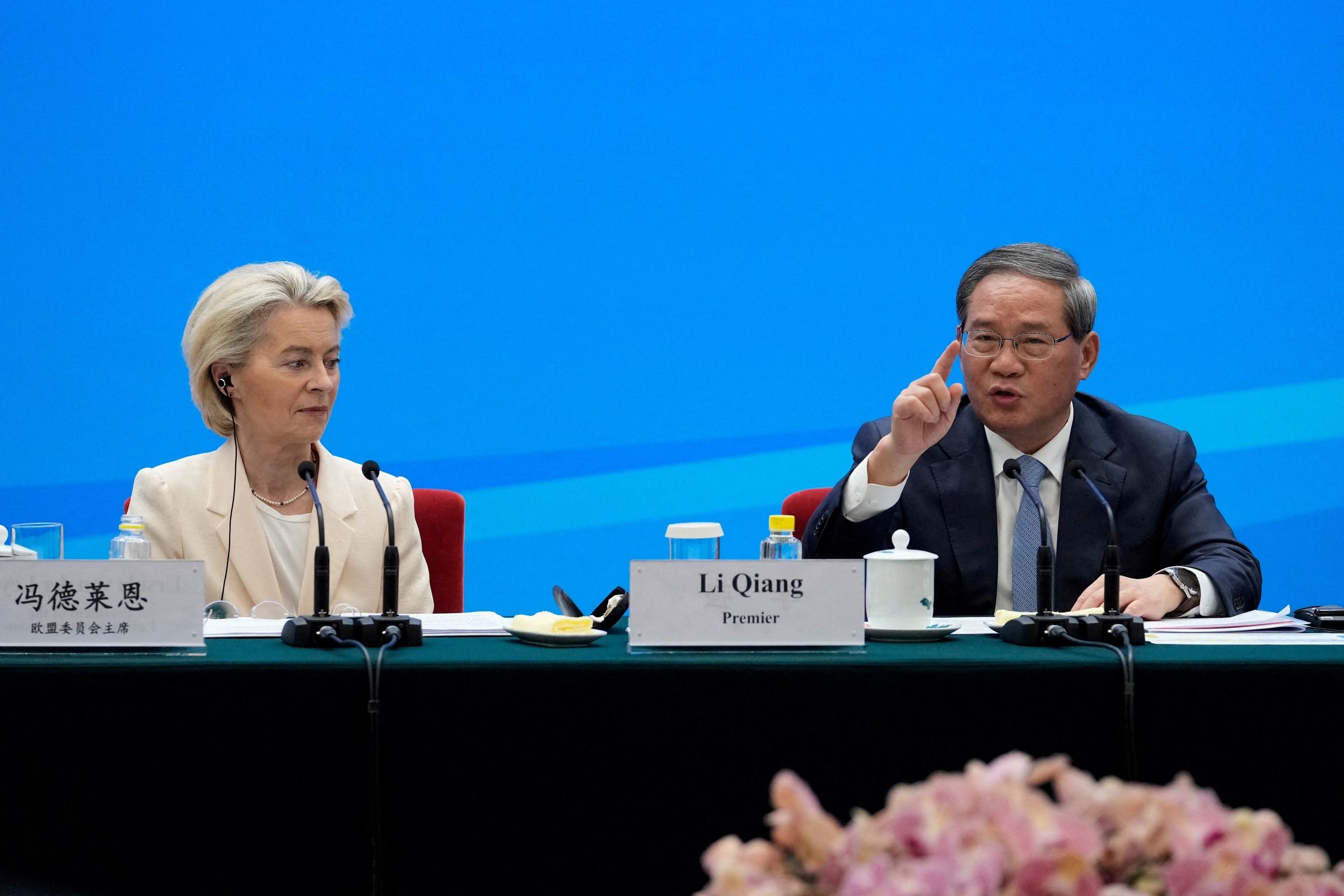On 24/9, Chinese Premier Li Qiang and European Commission (EC) President Ursula von der Leyen met in New York on the sidelines of the UN General Assembly. In a post on X, formerly known as Twitter, von der Leyen said they discussed trade and praised "China's willingness to engage in a dialogue based on mutual understanding."
"European concerns about export controls, market access, and overcapacity were all addressed," she wrote.
 |
EC President Ursula von der Leyen and Chinese Premier Li Qiang in Beijing, 7/2025. Photo: Reuters |
EC President Ursula von der Leyen and Chinese Premier Li Qiang in Beijing, 7/2025. Photo: Reuters
Over the past two years, China and Europe have been on the brink of a trade war. Most analysts attribute this to the EC's 2023 decision to launch an anti-subsidy investigation into Chinese electric vehicles. Europe imposed anti-subsidy tariffs on these products last year. Beijing retaliated by filing a complaint with the World Trade Organization (WTO) and initiating investigations into EU wine, pork, dairy products, and other goods.
However, with former US President Donald Trump's trade policies impacting both Chinese and EU exports, the two economies appear to have opted for reconciliation.
Premier Li Qiang stated that China and the EU "still hold the original aspiration when establishing diplomatic relations," according to a statement from China's Ministry of Foreign Affairs. He also emphasized his expectation that the EU will fulfill its commitment to continue opening up to trade and investment.
"As two important poles of the world, China and the EU should demonstrate responsibility and maintain strategic independence," the statement said.
Chinese trade officials face the challenge of negotiating with both the US and Europe simultaneously. Foreign business associations have repeatedly complained about lengthy delays in resolving disputes, such as rare earth export licensing. Last week, the European Union Chamber of Commerce in China warned that many businesses could face closure and losses as Beijing continues to tighten its grip on rare earths.
Meanwhile, the EC also faces the challenge of unifying the views of its 27 member states. In 10/2024, 10 countries supported imposing import tariffs on Chinese electric vehicles, 12 abstained, and 5 opposed, including Germany, Europe's largest economy.
According to diplomats, China is increasingly becoming a central factor in Europe's strategic calculations regarding the war in Ukraine. Many believe that China's role in the Russian economy and Chinese President Xi Jinping's potential influence over Russian President Vladimir Putin offer a better chance of achieving peace than Trump's unpredictable foreign policy.
Von der Leyen said she asked China to "use its influence to end the casualties and encourage Russia to come to the negotiating table." However, the Chinese Foreign Ministry's statement made no mention of the conflict in Ukraine.
Ha Thu (Reuters)












